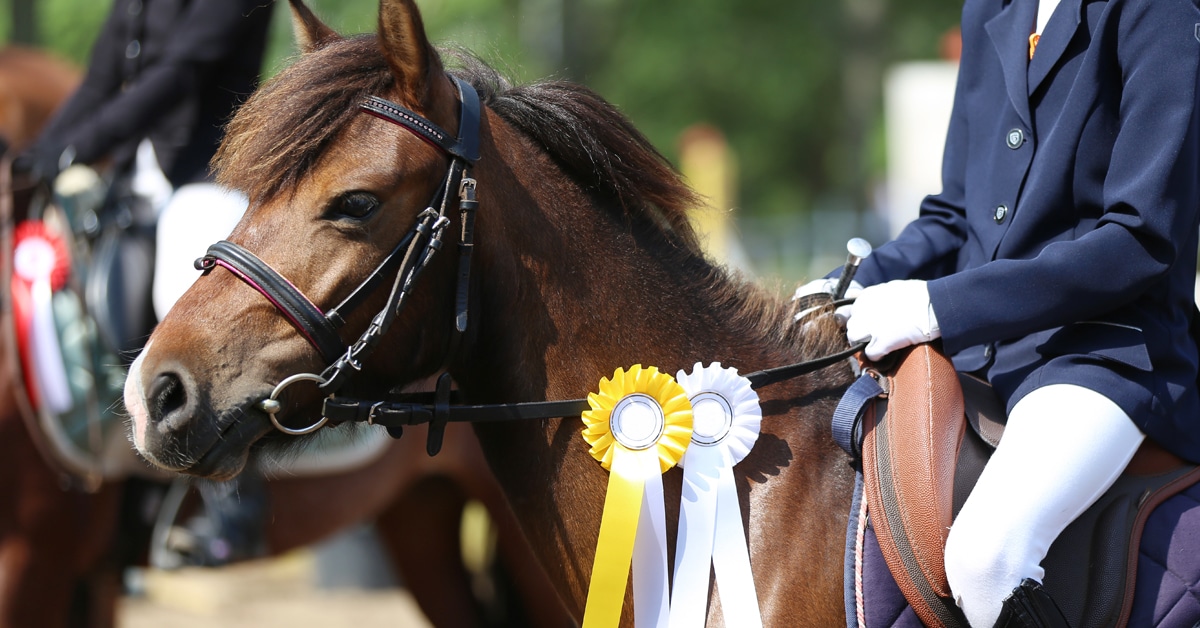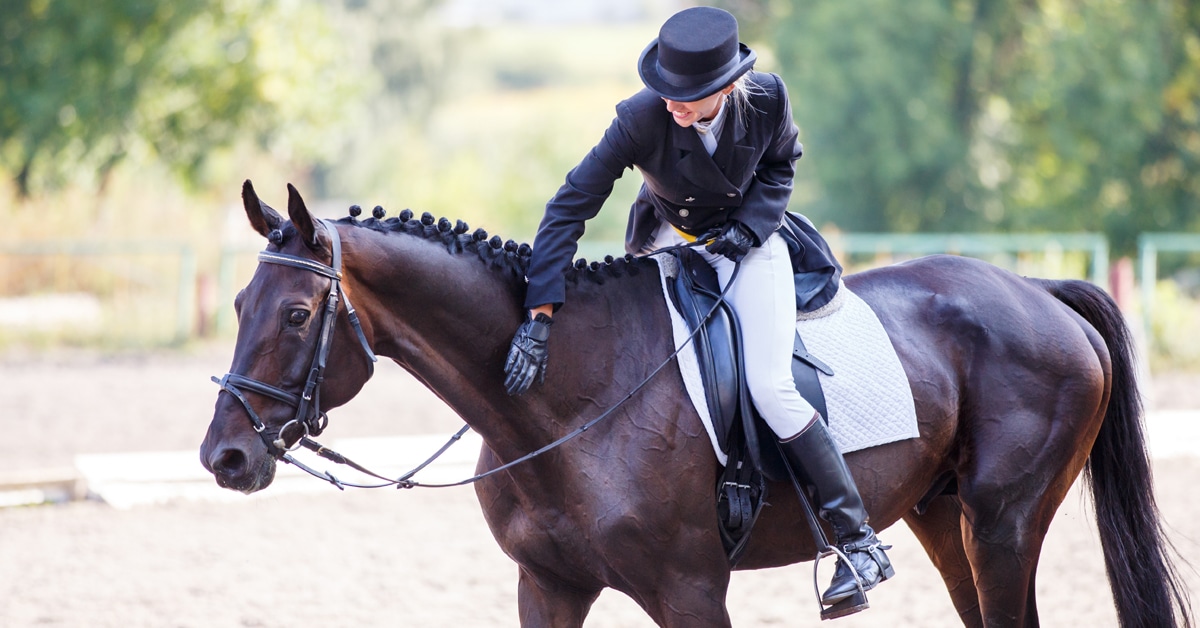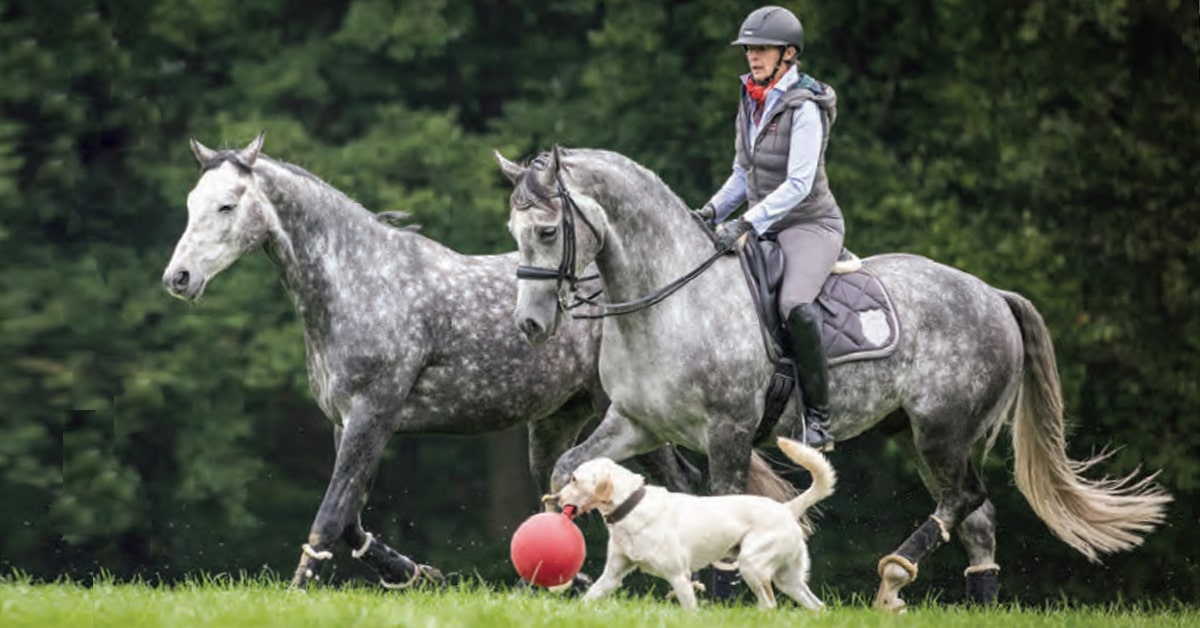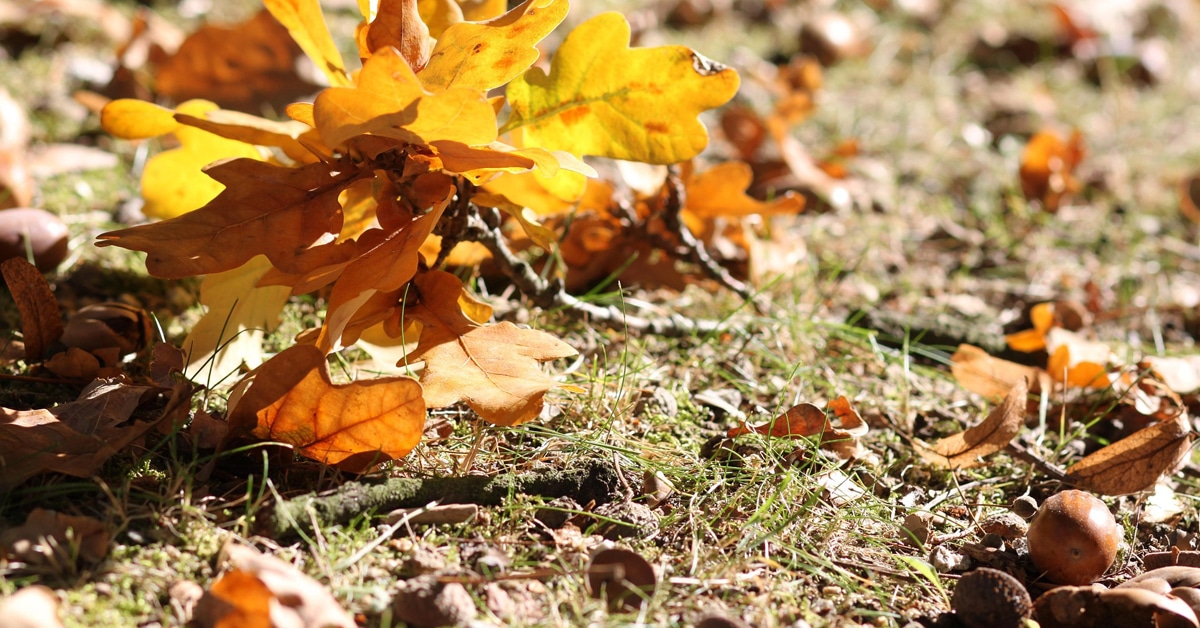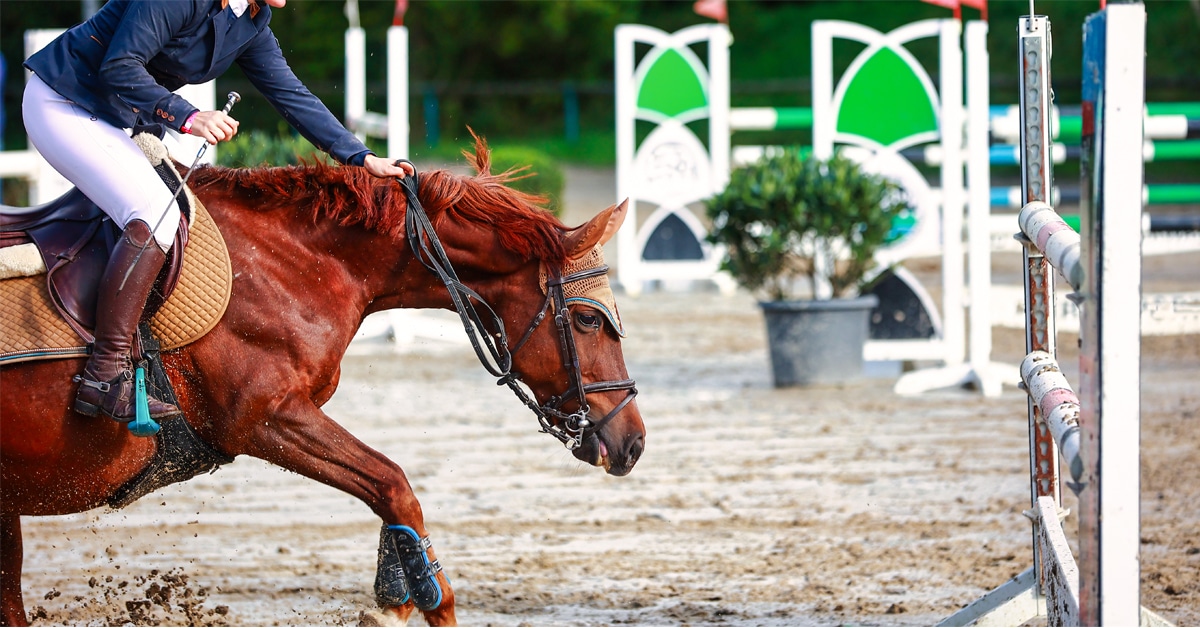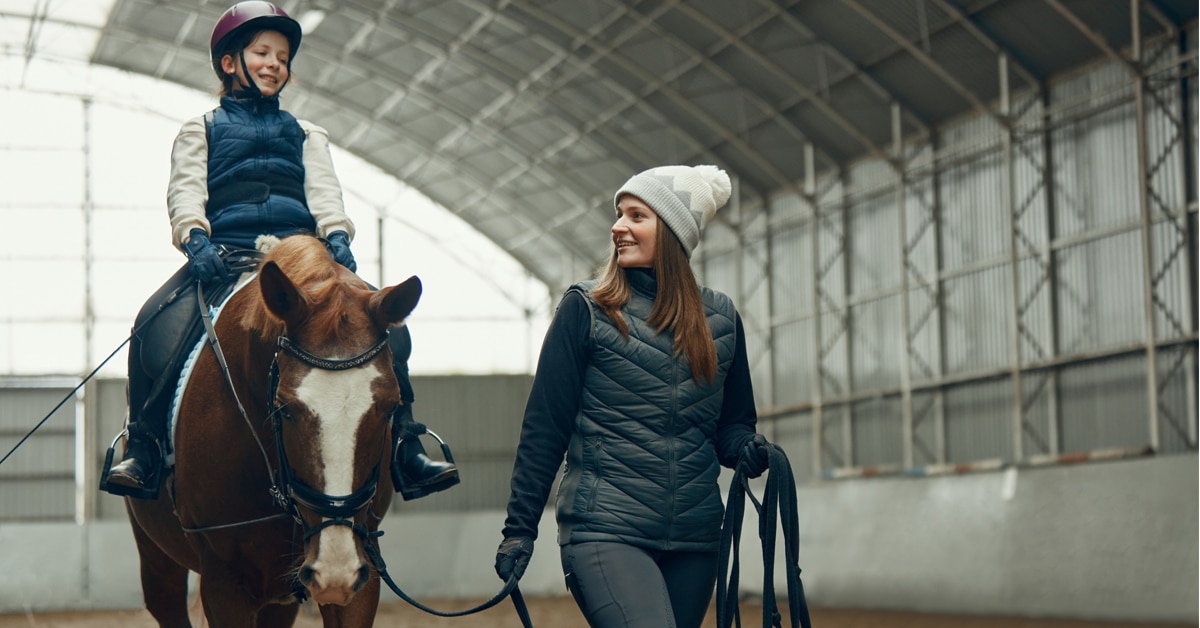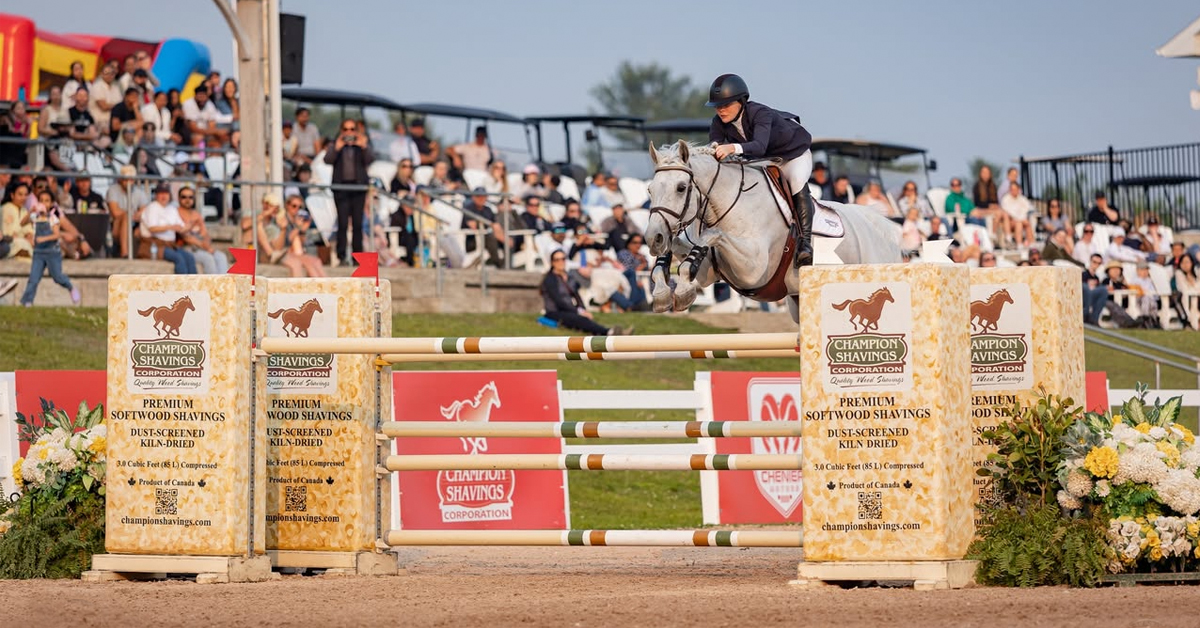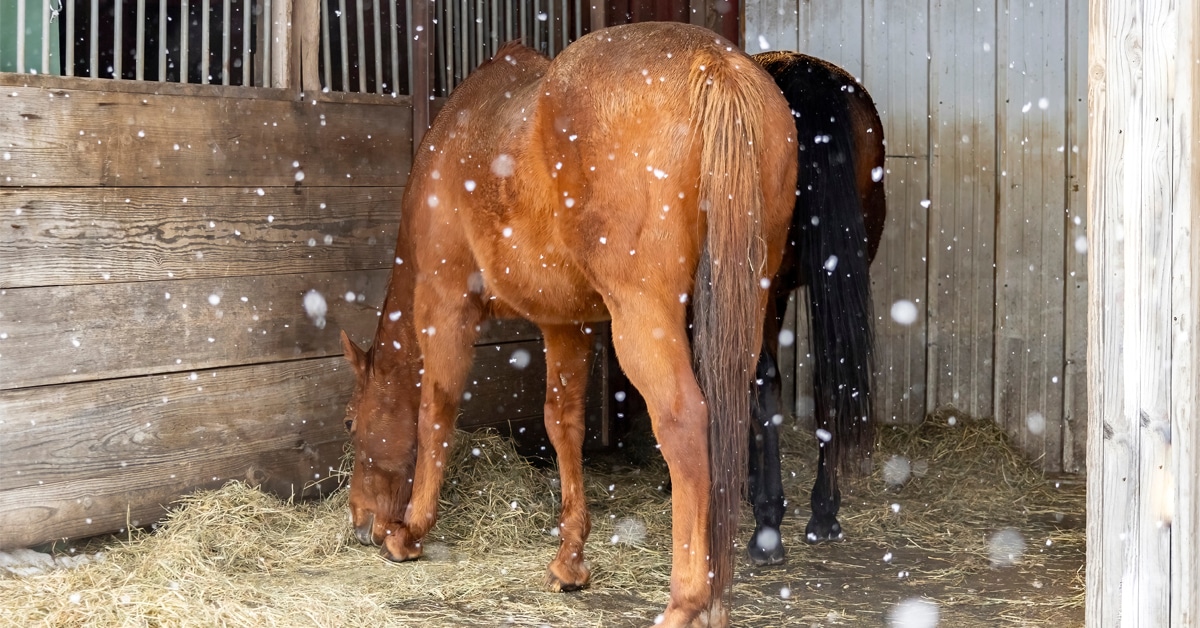Martin Fuchs:
Rolex Grand Slam of Show Jumping Live Contender
What is your earliest memory of riding a horse?
One of my first riding memories was when I was seven years old, I was riding my pony Cleopatra, it was with her that I competed in my first jumping competition.
The last few years have been incredible for you, what has enabled you to step it up a gear?
I’ve been very fortunate to have an amazing support group, a great set of sponsors and wonderful horse owners. My parents have always supported me through everything, I have an incredible team at home too, they have all helped me achieve my goals and my dreams. I’ve also put in a huge amount of work, I’ve had some pretty good results before, but right now I have a string of remarkable horses that have allowed me to remain competitive almost every week at five star shows. Previously, I would have only had a couple of top-class horses, but now I have a great string of horses, I can swap them in and out and try to win events week after week.
How do you find the horses, what exactly do you look for?
No two horses are the same, we don’t look for something particular in a horse, what we want is a careful horse who is also a fighter, and gives its best, which allows the rider to get the very best out of them.
Sometimes you compete against riders who have decades more experience than you, how do you keep your composure against them?
My family has always loved horses, I have grown up around the sport and all the great riders, this has allowed me to make a smooth transition into competing at the big shows. I still watch other riders and try to learn from them, to see if there is anything they do that’s particularly good, that I could take and try to improve. Despite my age, I have quite a lot of experience competing at a high level with a few different horses. Although there are certain situations where I feel I can learn from more experienced riders on the circuit to try and improve.
The Fuchs are world renowned in show jumping. How have your parents supported you throughout your childhood and career?
My parents have both supported me a lot from a young age, they have trained me, looked for horses for me, as well as helped me find horse owners and sponsors. It’s really been a team effort from all my family, as without them I wouldn’t have been able to become world number one and win a Rolex Grand Prix.
Clooney 51 is a superstar horse: how did your journey start and how have you grown together?
We bought Clooney through one of my best friends, when he was seven years old. In the beginning, he was a bit difficult, but he’s always been a great horse to ride. When he was eight years old, I realized that he could be a special horse, as he’d often placed in big Grands Prix. As a nine-year-old he placed second in a 5* Grand Prix in Doha. To become the team we are today, we’ve worked very hard on our dressage and his confidence. I try my best to keep him happy and give him the confidence he needs to perform, then in the ring he normally doesn’t let me down.
What do you think the qualities he naturally has that make him so special?
Clooney is very careful and clever at the fences; he’s very aware of his surroundings and always knows where the poles are. He’s a very intelligent jumper, with his own style, he doesn’t over-jump and never runs through the fences.
Do you plan on taking Clooney to The Dutch Masters?
I will definitely be taking Clooney; we’ve been training hard and preparing, so we have a good chance to do well.
You have achieved so much already but what are your next dreams and ambitions, what do you want to achieve?
I was ecstatic to become world number one; it was obviously a huge success and a dream come true for me, especially considering I’m still quite young. The Rolex Grand Prix victory in Geneva was the best possible outcome for me, which makes me a live contender for the Rolex Grand Slam. My main goals for this year are the Rolex Grand Slam of Show Jumping and of course the Olympics in Tokyo, which I’m incredibly excited for.
The Rolex Grand Prix win at CHI Geneva was obviously very emotional for you, can you talk about what that win meant for you, especially in front of your home crowd?
Geneva has always been a good show for me, I’ve never been close to winning the Rolex Grand Prix there though, so when I qualified for the jump-off, I was very excited. Clooney was in great shape and I knew the jump-off would suit us both, I kept focused and tried to go as fast as I could whilst sticking to my plan. It was then hard for me to watch the others go and I was quite sure that what I’d done wasn’t enough and one of the best riders would beat me. When Darragh Kenny, who was the last rider in the ring had a pole down, I realized I’d won. It was an incredible moment; made even more special winning in front of my home crowd, my family and my friends.
Looking ahead to The Dutch Masters, which has a much smaller arena, does that change your preparations at all?
Our preparation doesn’t change at all, Clooney is very good in the smaller arenas, so in a way it’s better for him. I’m excited as this will be my first time at The Dutch Masters, we will be competing at a 2-Star event with Clooney also in Holland a few weeks prior to the Dutch masters in order to be as prepared as possible.
Looking even further ahead to CHIO Aachen, again another completely different arena. Does Clooney grow in an arena like Aachen/ how does it affect him?
Clooney can be a little spooked in the big grass arenas, which makes things a little bit more difficult. Aachen is over the course of a whole week, which gives me the chance to get Clooney in the ring a couple of times before the Grand Prix, which will help us be more prepared. Last year he jumped really well and had clear rounds, however, during the second round I didn’t ride so well, but ultimately, I’m looking forward to bringing him back to the show.
Scott Brash won Rolex Grand Slam with Hello Sanctos, do you think Clooney could be a potential horse than could emulate their success?
I have complete faith in Clooney, I know he can win in any arena in the world, in any class. This gives me a lot of confidence, but I’ve not even dreamed about winning the Rolex Grand Slam because it’s so difficult. Anyone involved in our sport knows what Scott Brash has achieved is incredible and the odds of it happening again are so low. Of course, Clooney and I will try our best but who knows what the future holds.
What’s the best piece of advice you’ve ever been given?
I don’t think I’ve had a standout piece of advice given to me. I’ve learnt a lot of important values from a variety of people, the most important things I believe are to work hard, be dedicated, try to understand your horse and do your best every day.
When you’re not riding and competing, what are you doing? Do you have any hobbies outside of showjumping?
I’m quite laid back, so when I’m not competing, I like to go for long walks on the beach by the water, but sometimes I also go into the city. I try to relax as much as possible when I’m not training or competing, I think that’s important if you want to do well.
Thomas Fuchs:
International Show Jumper, trainer and father of the Rolex Grand Slam live contender, Martin Fuchs
When did you think that Martin had what it takes to reach the top?
When he’d finished competing in the Juniors, that’s when I realized he might have the potential to reach the top. At the beginning, it was more my wife who went to the shows with him, I did go a few times, but he fell off multiple times and so I stopped going! He always wanted to be a showjumper, at the age of 11 or 12 he competed in a few shows on an old Grand Prix horse from Renata, which 18 or 19 years-old at the time. He started to win a few competitions and that’s when I saw the potential he had.
What qualities does Martin hold that have allowed him to get to where he is now?
His connection with the horse is truly amazing, he’s very calm, he doesn’t get nervous. His fundamental skills, which he learned from dressage lessons are very good, which have helped him become the rider he is today.
When Martin won the Rolex Grand Prix in Geneva, it was obviously an emotional occasion, what was going through your mind at the time?
I remember the feeling when we realized that Martin had won the European Championships, the whole team was so emotional, and we started to realize something special was happening. Geneva was also special because everyone was there to support him, and it meant a lot to Martin to win such a big class in his home country.
You won at The Dutch Masters in the 80s, do you think Martin can follow in your footsteps?
Yes, I think I did win there! What I hope will happen and what will actually happen might not be the same thing, he definitely has a good chance, Clooney 51 looks really fit. He hasn’t jumped since Prague, so he’s had a nice break, and kept fit so he’s in a good position to do well at The Dutch Masters.
The arena at The Dutch Masters is quite small compared to Geneva arena, how do you adapt your preparations?
The horses are used to competing in many different arenas, I don’t believe it will have much of an impact on Clooney, he is used to varying conditions. A little bit of luck is always needed, the horse needs to be in top form. This will only be Clooney’s second show since Geneva, so it’s difficult to predict how he will perform, considering this, he’s in great shape, but in reality, we need everything to come together.
Do you get nervous watching Martin compete?
To be honest; not really no. The horse has done so many clear rounds so far, in the jump-offs at the end of course I get a little bit nervous, but the horse is really incredible, so overall, I’m not particularly nervous. I have confidence in my son and in Clooney, I don’t believe it’s necessary to be nervous anymore.
Obviously, you’re a world-renowned horse dealer, how did you find Clooney and the other horses for you and for Martin?
Over the years, I have built up a network of good friends and great contacts, who when they see something special, they get in touch. We have also gone to see so many horses it’s not the case that you find a horse like Clooney every year, as he is such a special horse. You need a bit of luck on your side, which we’ve had.
When you first saw Clooney, did you think that he was going to be the star that he is now?
At the beginning, when we first saw him, we thought he was a very nice horse, we weren’t thinking that he was a star from the beginning. However, when he won the Swiss Championships as an eight-year-old, we realized that he was a very special horse with a unique talent.
Obviously, Martin has done so much already at such a young age, what are your hopes and dreams for him, what would you like him to achieve?
I’m really happy with what he’s done so far, his career has been exceptional, he has already won a lot more than I did, although I do think it is a little bit easier for him. The equipment nowadays is much better, he can also go away to a show without having to worry about who is taking care of the horses. We have some incredible staff at the stables, who do an amazing job of looking after the horses, his mother takes care of all the paperwork, all of this allows him to really focus on the riding and the shows.
How has the sport of showjumping changed since you started your career compared to Martin now?
There are many more top riders competing in today’s competitions, it’s incredible how much the sport has improved. When I went to shows, sometimes we just had normal horses, nowadays, you need top class horses in order to be even be in contention. When I was competing, this wasn’t the case, you could win with an average horse, however, nowadays the only classes that are interesting are the really big ones.
What was the proudest moment of your career when you were jumping?
I’d say the proudest moment of my career is probably becoming the trainer for the two best riders in the world. I won a lot of classes as a rider, but I never won any of the top classes. My brother and I, especially when were at the beginning of our careers, we had to take care of a lot more things than those who compete nowadays, we had to run the stables ourselves. We couldn’t always concentrate purely on competing, there were many other responsibilities. I think that this is one of the reasons why I retired from competing so early on in my career, because there was too much take on.
Training Steve and Martin, I don’t need to be there every day, but with the big shows and the championships I’m there and I try to calm them down a bit. Overall, we have found a great balance between being a trainer, a father and a friend.
It must be quite interesting, because Steve and Martin are such good friends, but then they’re battling for the world number one spot, is there quite a friendly rivalry between them?
The rivalry between them is great, it makes them both train and compete harder, because they both want to be World no.1. Of course, they compete against each other, but they are still good friends. Steve and Martin both want to win, but if they come second and the other wins then they are still happy because they are so close, they support each other fully. Inside the ring, they’re competitors, but in private they’re very good friends. Sometimes, there is a bit of jealousy, but that is natural, it’s a good thing to have when you’re competing to be the best.
The funny thing is, when Martin became World no.1, he called me and asked me “what’s it like to be the trainer for the number one rider in the world?” I replied saying “I’m used to this” What he should have asked was “what’s it like being the father of the world number one”.
Lastly, if you didn’t work in the showjumping or equestrian world, was there any other career path that you could see yourself doing?
Working in the equestrian industry is all we’ve ever known, we started an apprenticeship and then started dealing horses. Martin is a horse man through and through, I don’t think I’m too bad either, there isn’t another career path I could see either of us doing.
The Latest
